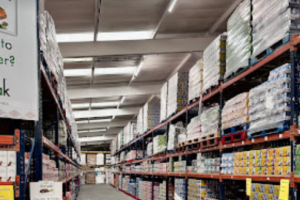In a survey conducted by analyst Lumina Intelligence, 54% said that Brexit had increased the administrative burden.
An identical percentage said it had made the supply chain more unreliable, while 49% agreed that staff shortages had been affected by Brexit.
The 100 business leaders asked all came from the grocery or hospitality business. Overwhelmingly (75%) they thought the government should be supporting businesses to overcome Brexit challenges.
Katie Prowse, senior insight manager at Lumina Intelligence, said: “Brexit, coupled with heavy restrictions on movement caused by the pandemic, has resulted in significant resource challenges for businesses across the UK food and drink industry.
“Business leaders want to see the government do more to support. Issues surrounding the UK’s departure from the EU including trade deals, processes around imports and exports and EU worker rights in the UK are all the remit of the UK government and so it is vital that it plays a leading role in aiding, communicating and working alongside businesses through the transition.”
The survey also identified the leading trends in the grocery business as increased demand for deliveries, the growing use of the internet and technology, and the changing behaviour of younger shoppers.
Prowse added: “Despite restrictions easing, businesses operating in the grocery retailer and eating out markets are less positive about current trading conditions than they were in October 2020.
“However, businesses are much more positive about future trading conditions.
“It is clear that business leaders agree with our forecasts that key pandemic-led trends will continue to evolve post-pandemic.
“Consumers have been forced to embrace new things during the pandemic, which have since evolved into well-established habits.
“Delivery and technology have always been key to attracting younger consumers, however the pandemic has resulted in all demographics embracing these trends and truly increased the opportunities available to retailers and operators.”
 Talking Retail Grocery and product news for independent retailers
Talking Retail Grocery and product news for independent retailers






